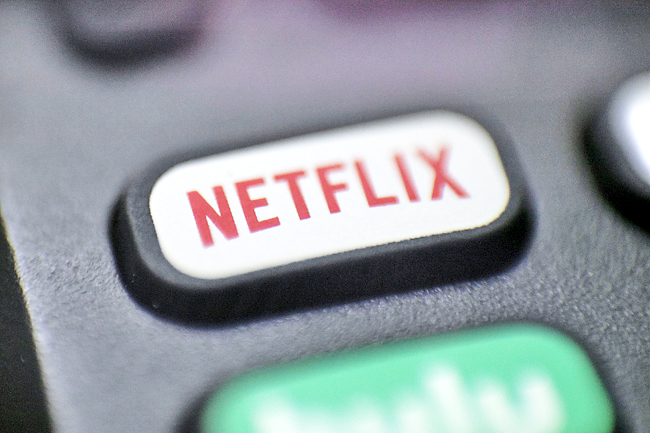SAN FRANCISCO (AP) – An unexpected drop in subscribers sent Netflix shares into freefall on Wednesday, forcing the company to consider experimenting with ads and – hold onto your remote – cracking down on millions of freeloaders who use passwords shared by friends or family.
The surprising net loss of 200,000 subscribers rattled investors, who had been told by the company to expect a gain of 2.5 million subscribers. Netflix shares sank 35 per cent on the news, falling to their lowest level since early 2018.
Netflix estimates that about 100 million households worldwide – or roughly one out of every three households using its service – are streaming for free.
“We’ve just got to get paid at some degree for them,” co-CEO Reed Hastings said during a shareholder call on Tuesday.
Netflix has already been experimenting in Latin America with programmes that use a soft touch to convince the unsubscribed to sign up. In Costa Rica, for instance, Netflix plan prices range from USD9 to USD15 a month, but subscribers can create sub-accounts for two other individuals outside their household for USD3 a month. On Tuesday, Hastings suggested that the company may adopt something similar in other markets.
Just how Netflix will erect barriers remains unclear, and Hastings indicated that the company probably will spend the next year assessing different approaches. In one test last year, Netflix prompted viewers to verify their accounts via email or text.
Netflix is bracing for more subscriber losses even before it attempts to weed out freeloaders.

The company predicted its customer base will shrink by another two million subscribers by the end of June.
That would still leave Netflix with 220 million worldwide subscribers, more than any other video streaming service. For years, amid rapid global growth, Netflix has looked the other way at the not-so-secret practice of subscribers sharing passwords beyond their households.
And Hastings has spoken passionately in the past about keeping Netflix ad-free.
But competitive pressure is on the rise. Deep-pocketed rivals such as Apple, Walt Disney and HBO have begun to chip away at Netflix’s dominance with their own streaming services.
The easing of the pandemic is giving consumers entertainment options beyond binge-watching their favourite shows, and rising inflation is making families think twice about how many different streaming services they’re willing to pay for.
All of this has given investors major jitters for months.
The Wednesday selloff came on top of earlier trouble for the stock, which has lost 62 per cent of its market value since the end of 2021, erasing USD167 billion in shareholder wealth.
Netflix is counting on bringing some advertising into the mix to help bolster its profits, which totalled USD1.6 billion during the January-March period, a six per cent decline from the same time last year.
The crackdown on password sharing could be more problematic, though. “I think we may be at the point of no return for password sharing,” said digital marketing strategist for Time2Play, a gaming site that studied the “streaming swindlers” phenomenon, Ben Treanor.
“I think there’s a chance if you throw someone off their family’s account, they may not pick up their own account.”



















































